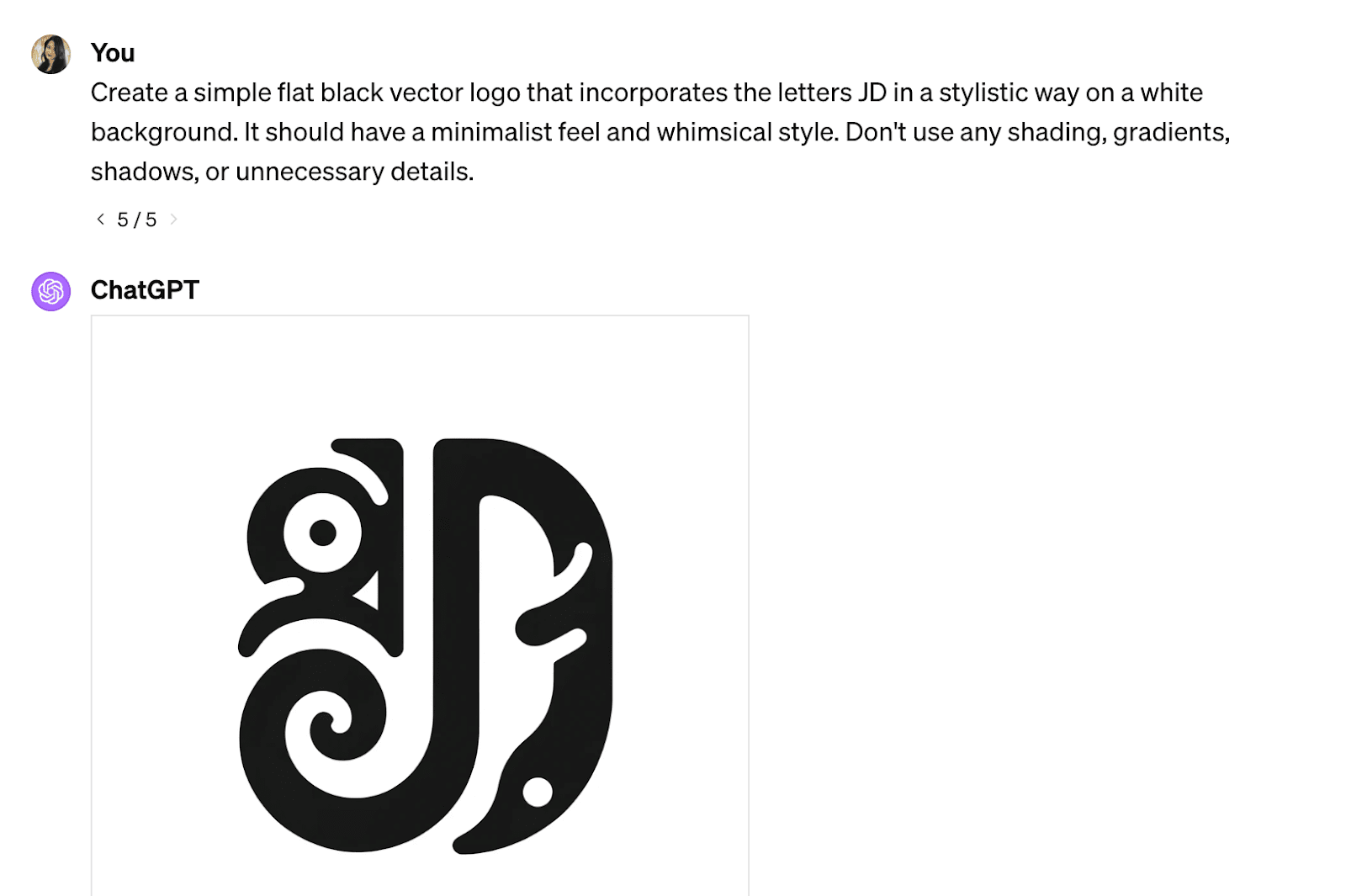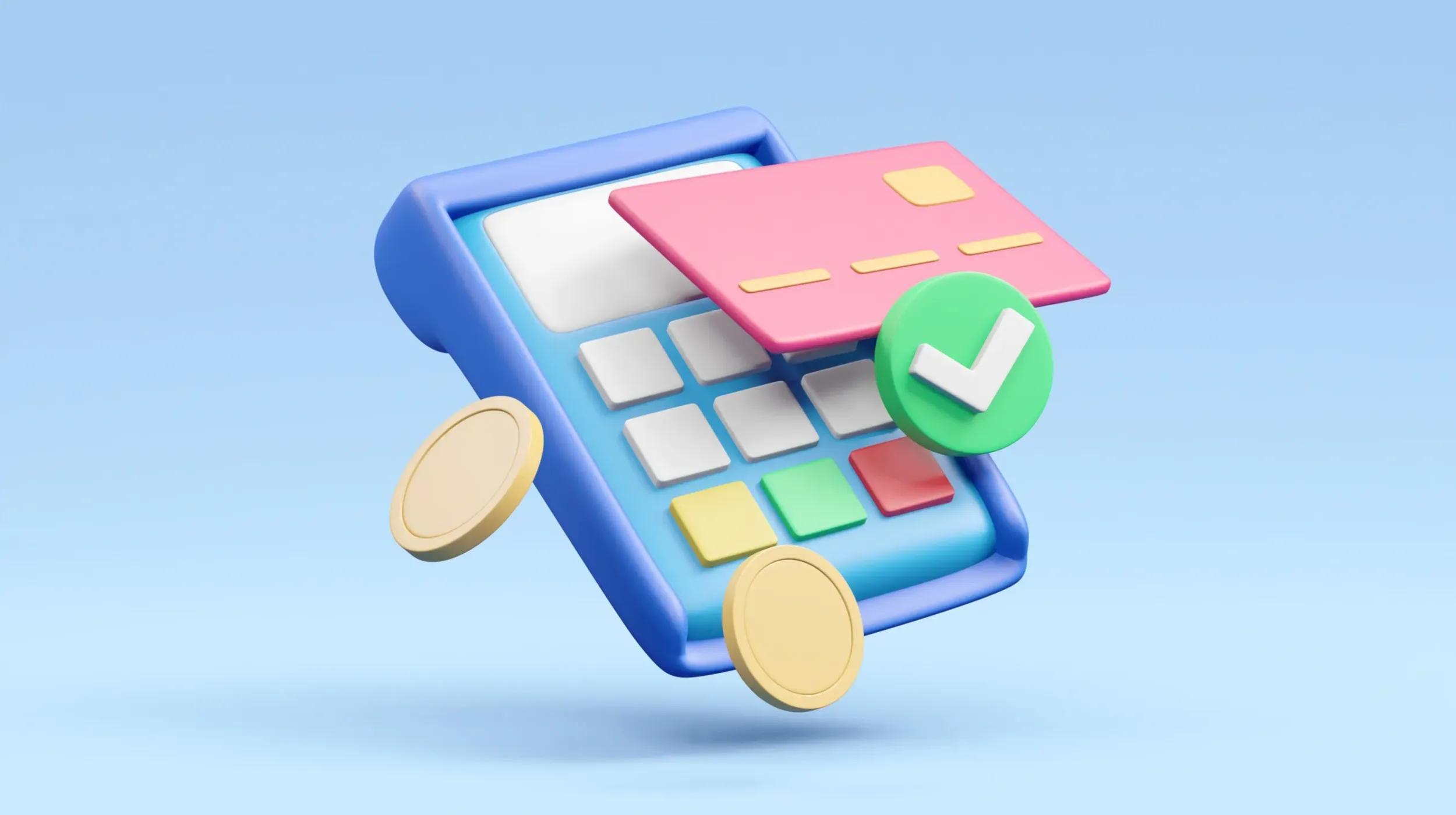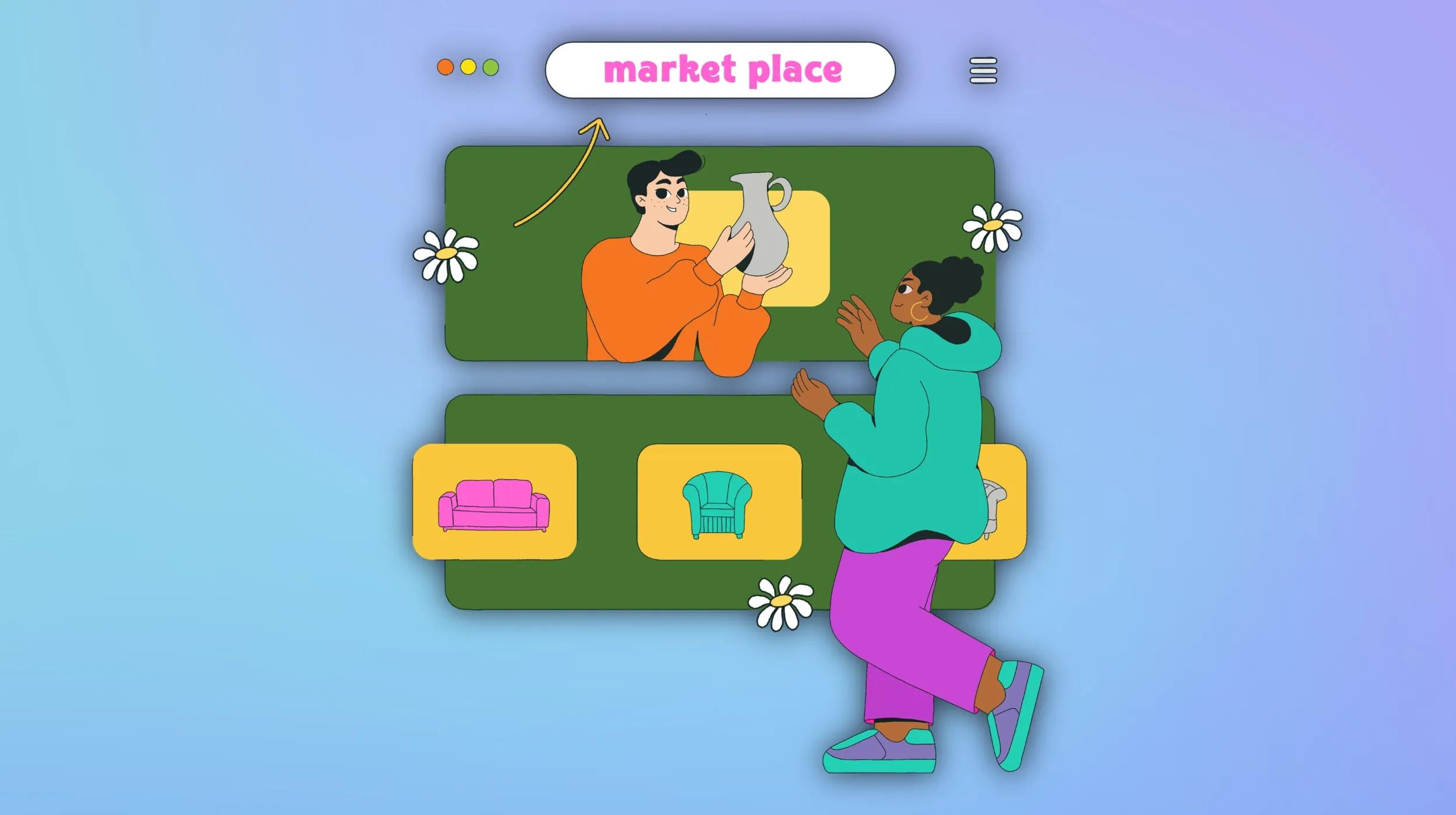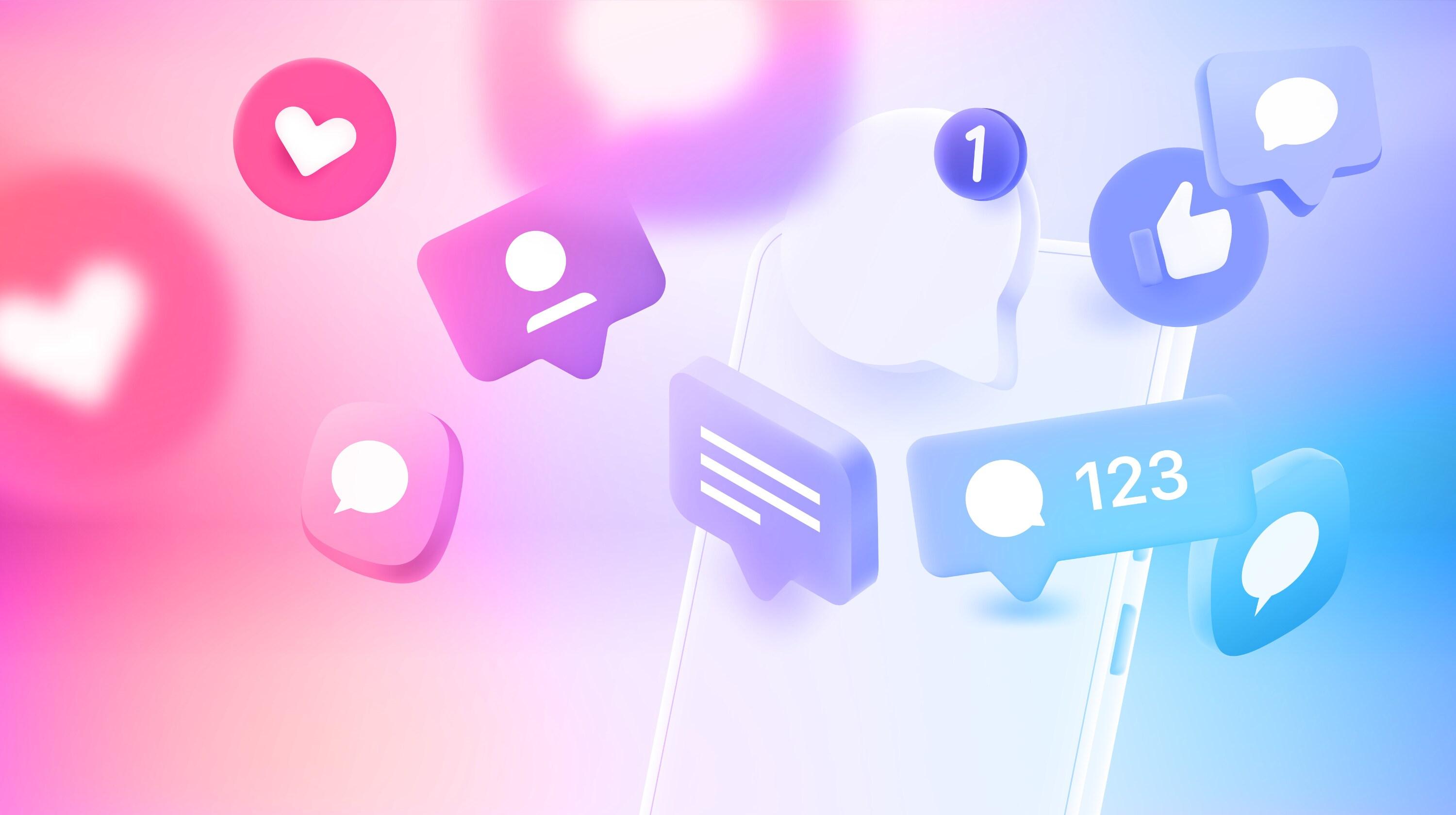As someone who started multiple digital businesses over the years, I know it always feels exciting but also overwhelming. A lot of things to do. A lot of things to figure out. A lot of uncertainty and overthinking.
Thankfully, if you're asking what entrepreneurship is and how can technology help, we have amazing technology at our fingertips that can be used for so much more than generating random jokes and travel itineraries! It can be a really powerful tool for entrepreneurs if you know how to use it with purpose.
In this article, I'll share how ChatGPT, an AI chatbot that took the world by storm and now has over 180 million users, can help you get clarity and focus as you start this new journey. We'll look at specific strategies to help you build a solid foundation before you even launch.
Disclaimer: When using AI tools, avoid entering sensitive information and always review output for accuracy. Additionally, this content is for demonstration purposes only; it does not represent any affiliation, endorsement, or sponsorship with ChatGPT or Open AI. All trademark rights belong to their respective owners. Third-party trademarks are used here for demonstrative and educational purposes only; use does not represent affiliation.
1. Who is my target audience?
Knowing your customer is EVERYTHING in business.
Without understanding who you are trying to serve, it's virtually impossible to have long-term success with any business model.
You can ask ChatGPT to outline your ideal customer persona, or several. It will draw a full picture for you with typical demographics, pain points, and motivations of people in your chosen niche.
This will allow you to curate your product offering for their specific needs and speak their language in your marketing later on.
Try this prompt:
I have a product/service in the [industry/niche] space. It solves [list 2-3 major pain points]. It offers these key features/benefits: [brief description]. Please create a detailed profile of my ideal customer, including demographics, psychographics, pain points, and goals. Then explain how I can serve this person in bullet points.
Pro tip: Talk to your ideal customer
After defining your target customer persona, ideally, you should test the waters. Talk to potential customers, get feedback, and validate your idea before investing your time and money.
You can talk to people you know or join relevant online communities, for example, on Facebook or Reddit, and see if people actually want what you are planning to offer.
But if you don't know anyone, don't want to invest a lot of time into research, or are an introvert like me, talking to ChatGPT is the next best thing.
Start a new chat and try this prompt:
Act as a [who] [struggling with what].
Imagine that this is your ideal customer who you can ask anything you want without feeling awkward or annoying. Keep this conversation going until you have enough insights to feel more or less confident about your mission.
You can always get back to that chat in the future if you have more questions.
2. How can I stand out in the market?
In a crowded market, being just like everyone else is a recipe for failure. To succeed, you need a crystal-clear understanding of why someone would choose your business over all the others out there.
ChatGPT can help you uncover the unique value you offer and build your brand around it.
Make sure to ask yourself some key questions:
- What unique value proposition can my business offer? This goes beyond just features. What's the deeper transformation you help your customers achieve? How does your solution make their life better, easier, or more fulfilling?
- What makes my brand unique? It could be your expertise, your quirky personality, or a strong commitment to a cause that matters. Don't be afraid to let your individuality shine through!
- How does my offering truly stand out from existing solutions? Is it a new way of doing something, better quality, a more personalized experience? Find that magic ingredient no one else has.
- What's my competitive advantage? Is it lower prices, faster service, an exclusive element, or a different approach altogether? Identify it and make it your strength.
- Does my idea solve a genuine problem for people? Is the problem big enough to create a sustainable customer base? Be brutally honest with yourself here. If your solution doesn't solve a real pain point or need, it's much harder to become a thriving business.
Feed your thoughts to ChatGPT, and then try this prompt:
Let's say my business concept is [briefly describe your idea]. What could make me stand out from other businesses in this space? How can I identify and highlight my unique value proposition?
Related: AI Prompts for Digital Marketing
3. Make a unique logo
Your logo is like your business's first impression – it needs to be memorable and reflect your brand's essence.
ChatGPT is now smart enough to design some pretty slick logo concepts, you should definitely give it a try if you don't have an in-house designer!
Describe your business, its values, and the overall vibe you're aiming for, and see if ChatGPT generates something that feels right.
You can always go through several iterations and keep adjusting until you get something that works for your brand.
Try this prompt for an online store:
I run an online store called [name] that sells [type of product] for [customer persona]. Create a logo that feels [modern/playful/luxurious/minimalist etc.]
Try this prompt for a personal brand logo:
Create a [define desired style, e.g. simple flat black] vector logo that incorporates the letters [your initials] in a stylistic way on a [color] background. It should have a [what] feel and [what] style. Don't use any shading, gradients, or unnecessary details.

Depending on your business and initial budget, a ChatGPT-generated logo may be enough to get you going. At the very least, you can use it as a starting point to bring your ideas to life and brainstorm some visual concepts you have in mind before hiring a designer.
Besides the logo, AI can help you brainstorm various other things, such as generate a brand name or slogan or come up with creative marketing strategies
4. What are the current trends in my industry?
Gotta keep your finger on the pulse! Trends change fast, and what works today might be old news tomorrow.
If you have some industry experience, you probably don't need this as much. But if you're brand new, this tip will help you discover trending topics and stay on top of the ever-changing interests of your audience.
ChatGPT can give you a quick snapshot of what's hot in your niche. From new slang terms to buzz-worthy products or tools, it can put you on the right track for researching current trends more in-depth.
To be frank, ChatGPT is not the best for this particular use case, but you can use other free AI tools like Perplexity or Google Gemini for a better shot at up-to-date insights.
Try this prompt:
What are the major trends and developments currently shaping the [your industry/niche] space? Please consider elements like technology, customer behavior, and marketing strategies. List 10 related things everyone is talking about.
I also recommend using a trend discovery tool continuously after you launch your business. For example, with Exploding Topics, you can get regular insights into your industry even on a free plan. It lets you learn about new trends before they become mainstream so you can utilize them for your marketing and stand out even in the crowded niche.
5. How should I measure success?
With all the excitement that comes with launching a new business, it's easy to get lost in the day-to-day hustle and lose sight of the bigger picture.
That's why it's important to define how you'll measure success even before you start, setting the direction for your efforts.
- Set measurable goals: Never just say, "I want more sales." Get super specific on what you want and what steps can get you there! Do you aim to increase sales by 20% in a quarter? Acquire 100 new customers in a month? Launch two new products in the next six months?
- Identify key metrics: What numbers truly matter for your business type? It can be sales revenue, profit margin, website traffic, customer conversion rate, email subscribers, or social media engagement. Focus on a few key metrics that clearly show if you're reaching your goals. Try to avoid vanity metrics like social media likes.
Try this prompt:
My business is [describe your business model]. What are the most important metrics I should track to measure my progress in the first 6 months?
6. What is my content strategy?
Regardless of the type of business you are starting, in 2024 you definitely need to have an online presence.
Whether it's a blog that brings organic traffic for your store, a social media platform where your target audience usually hangs out, or both, is up to you.
If you are unsure where to start, you can also ask ChatGPT about the pros and cons of different platforms.
In any case, you'll need to publish some kind of content to promote your amazing business.
ChatGPT can help you brainstorm content ideas and develop a solid strategy.
Try this prompt for a blog content strategy:
I want to start a blog for my business in the [what] industry. Give me 50 relevant keyword ideas and content topics that will appeal to my ideal customer.
Try this prompt for a social media strategy:
I have a [what kind] business that helps [customer persona] with [problem]. My target audience is mostly on [what social media platform]. Give me 10 specific ideas for a content strategy for this platform to attract new followers and promote my business.
Related: AI Prompts for Content Creation
7. Who can I learn more about this business from?
Successful entrepreneurs never stop learning. Seeking out knowledge, insights, and inspiration is key when building a profitable business people love.
It's incredible how much information is available on YouTube right now compared to 20 years ago when I didn't even have the internet at home. You can literally learn everything about everything on YouTube!
If you can afford mentorship or coaching, that's arguably the most effective way to build a successful business fast. But if you are just starting with a limited budget, leverage all the information you can find online from people who already succeed with a similar business model.
Try this prompt:
What are some popular YouTube channels talking about a [type of business] I can learn from? Give me the names of the channels.
ChatGPT doesn't always give you the channel names, but it can normally suggest a couple of the most popular videos on a subject with links to each. This again may be a better use case for Google Gemini.
Later, YouTube will pick up on your new interest and start suggesting other relevant channels you can learn or draw inspiration from.
It's easy to go into a rabbit hole of watching YouTube for hours – and then you get overwhelmed by the amount of information and don't do anything meaningful for your business. And forget most of it the next day.
Treat it almost like taking a course on something. Take a lot of notes as you are watching, and outline action items after each valuable video that you can apply to your own business now or in the future.
Wrapping up
Hopefully, these conversations with ChatGPT will help you reduce the usual overwhelm of a new business owner.
Now, take those insights and turn them into action!
Stay focused, and good luck with your venture!
Disclaimer: Opinions belong to the author alone and do not necessarily represent the views of GoDaddy. All trademark rights belong to their respective owners. Third-party trademarks are used here for demonstrative and educational purposes only; use does not represent affiliation or endorsement.
This is strictly a roundup of products based on the top-rated/top-reviewed items in each category. As with all things, do your homework and your own research before making any purchase decisions. This post is not in any way considered an endorsement of any product.







